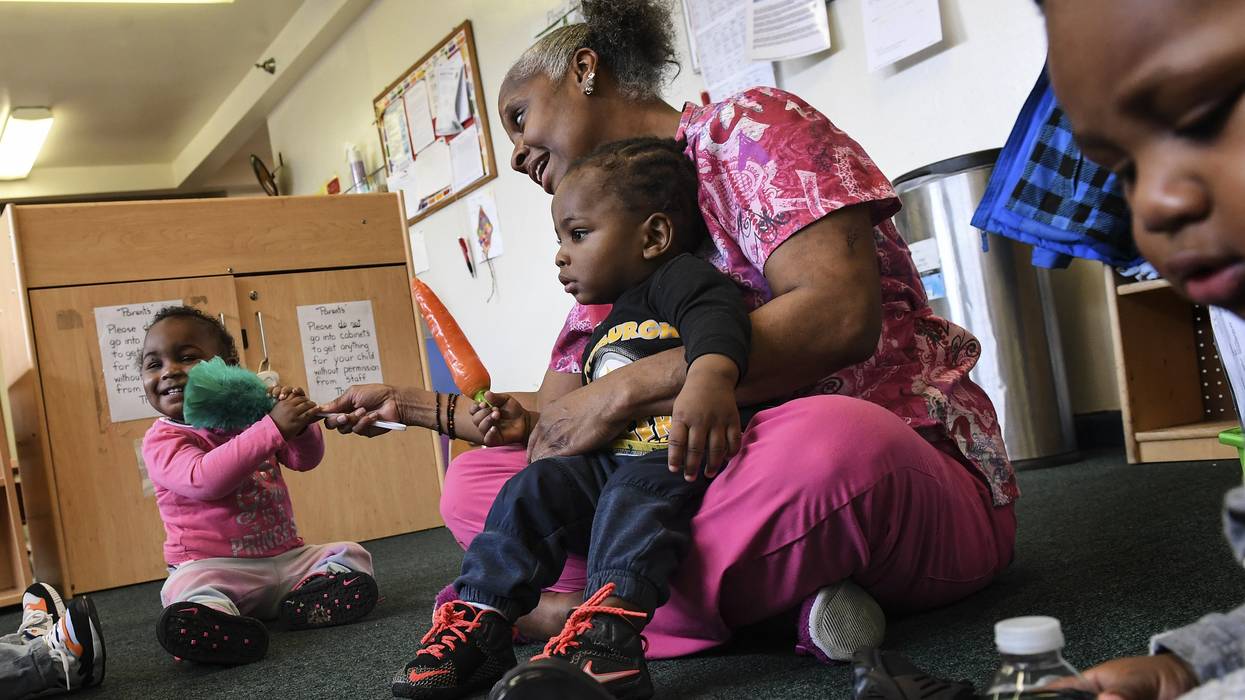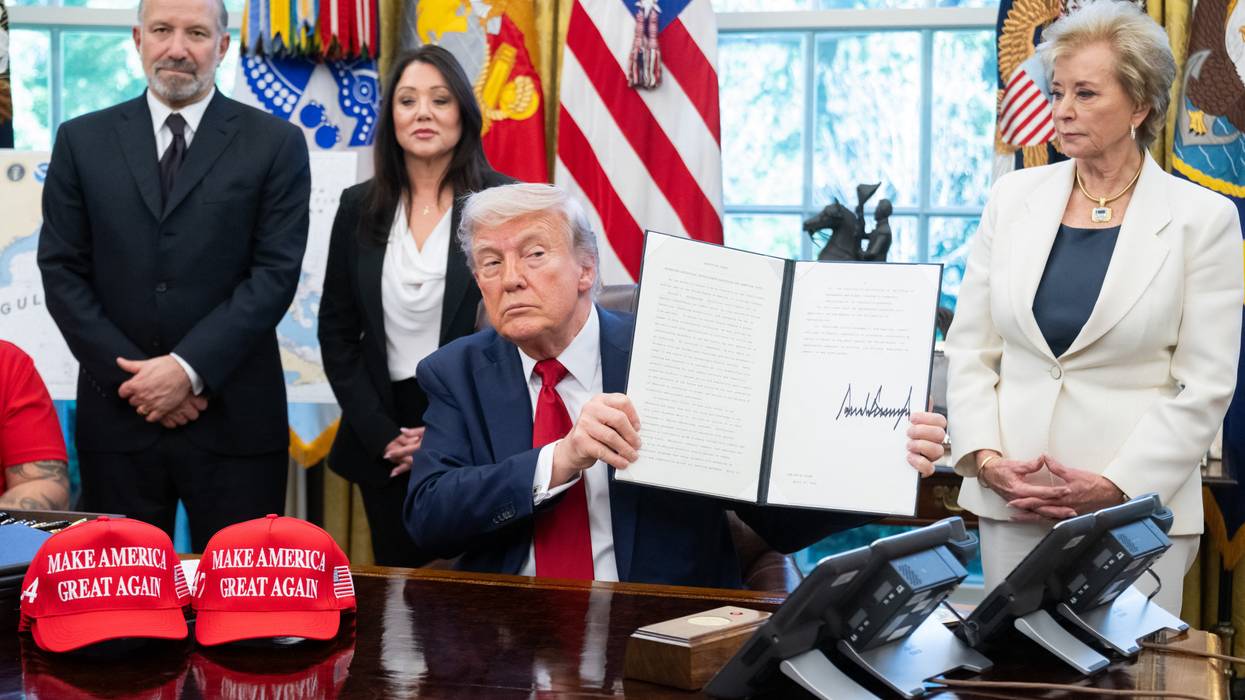And now Secretary McMahon is spiking the ball in a 50-state tour called “Returning Education to the States.” More than a celebration of the administration’s defeat of brainy bureaucrats at the Department of Education, the tour touts the passage of the “Educational Choice for Children Act” (ECCA) as part of the president’s “One Big Beautiful Bill.” The act creates a national opt-in voucher system for students to attend private or religious schools, to be funded by an extraordinarily generous dollar-for-dollar tax credit for donations to Scholarship Granting Organizations.
The problem is that in these related cases—the attacks on the department of education and the creation of a national voucher system—Secretary McMahon and President Trump are not acting in the interests of students, nor do they seem to be thinking about them at all. These efforts to return education to the states appear motivated not by improving educational outcomes, as we’ll explore, but by creating tax breaks for the rich while privatizing public education and weakening teachers’ unions, a pillar of the Democratic Party.
But First, a Little Backstory...
To fully grasp the stakes of the attack on the Department of Education, we must remember why the federal government got involved in education in the first place. Conservatives rightly note that the Constitution does not mention education, leaving it instead as a reserved power for the states. They’re also correct that despite providing only 10% of total public school funding, the role of the federal government in education has grown significantly over the past half-century.
Yet federal power in education grew neither by accident nor by conspiracy, but in response to systemic failures that states could not and in some cases would not address.
In 1965, following the Civil Rights Act and amid the War on Poverty, the Johnson administration sought to tackle two forms of intransigence: the South’s resistance to school integration and the persistence of poverty amid plenty. A former schoolteacher himself, President Lyndon Johnson proposed the Elementary and Secondary Education Act (ESEA), which directed federal funds, called Title I, to low-income schools and students. Crucially, it tied Title I funding to compliance with desegregation orders. This strings-attached model became the foundation of the federal approach to K-12 education and is critical to understanding its outsized voice.
When Secretary McMahon announced that her “Returning Education to the States” tour would kick off in Louisiana, Arkansas, and Tennessee, it sounded like yet another state’s rights dog whistle.
Flash forward a decade: When President Jimmy Carter created the Department of Education in 1979, conservatives saw it as the fulfillment of a politically motivated campaign promise to secure support from the National Education Association, the largest teachers’ union in the country. Politics was surely part of the calculus, which conservatives have long resented.
Yet beyond the politics of the moment, the new department was also created to increase efficiency and effectiveness, allowing the federal government to consolidate its education-related functions into a single agency. Navigating the two largest streams of K-12 funding—Title I and IDEA—would be less complicated under its purview. Continuing the strings-attached model, the department established an Office of Civil Rights to investigate whether schools receiving funds were in compliance with federal civil rights laws. But this last piece represented a continuation of federal oversight that some states resented, especially across the South.
So in 1980, when Ronald Reagan campaigned against the new department and called for returning control to the states, he appealed—intentionally or not—to two groups. The first were earnest conservatives who, after decades of government expansion, sought a renewed federalism that would respect greater state and local autonomy. The second were those who felt the federal government had overreached, in schools and elsewhere, by enforcing civil rights laws in the South. Reagan’s advisors seemed to understand this double-meaning and tapped into it with dog whistles, directing the Gipper to open his 1980 campaign with a “state’s rights” speech in Neshoba, Mississippi, a town made infamous by the 1964 murders of three prominent civil rights activists.
President Reagan was ultimately unable to get rid of the Department of Education. Instead, Reagan decided that if he couldn’t kill the department, he would render it useless by appointing leaders, like Secretary William Bennett, who did not believe in its purpose. This was the template for Trump’s appointment of both Betsy Devos and Linda McMahon.
Back to the Present
When Secretary McMahon announced that her “Returning Education to the States” tour would kick off in Louisiana, Arkansas, and Tennessee, it sounded like yet another state’s rights dog whistle. Compounding that feeling is the fact that the secretary’s layoffs in March targeted the department’s Office for Civil Rights, leaving it unable to perform its oversight and investigative duties and leading to a long list of civil rights cases that may never be reviewed.
But more than civil rights oversight is at stake. The Institute of Education Sciences, which researches best practices in teaching and provides comparative data about educational outcomes, was also targeted in the Secretary’s layoffs. The institute additionally oversees the National Assessment of Educational Programs (NAEP) tests, which are used to gauge academic achievement by various measures across the country.
None of this is in the interests of students.
President Trump and Secretary McMahon have shown no consideration of the fact that, as research suggests, many of these programs will fail students, affecting millions of children nationwide.
The growing backlog of cases in the Office for Civil Rights does nothing to protect vulnerable students, just as the effective shuttering of the Institute of Education Sciences does nothing to improve teaching and learning. But rendering the Office for Civil Rights useless does give cover to states to do as they please—and if doing so hurts test scores, a dataless Institute of Education Sciences will lack the information critical for accountability.
Secretary McMahon and President Trump have also expressed interest in turning Title I, the largest stream of federal money for K-12 education, into block grants. Doing so, as Project 2025 advises, would give states greater discretion over how the funds are used. Without vigorous oversight, it is likely that some states would not direct the money toward low-income schools and students. The president has already issued guidance for how states can redirect Title I money into voucher programs and, according to Politico, has worked with House Republicans to propose a $5.2 billion cut to the program for fiscal year 2026.
But the most immediate push for vouchers comes in an overlooked part of the “One Big Beautiful Bill,” called the “Educational Choice for Children Act” (ECCA). It establishes the first national voucher system, allowing students in states that opt in to use vouchers to send students to private or religious schools. The program is funded through federal tax credit. These breaks are an unusually generous dollar-for-dollar credit on any donation to Scholarship Granting Organizations. And, shockingly, donations can include stocks that will be valued at their pre-capital gains amount, meaning donors will save more from the donation than they would make from cashing out the stock.
More than an appealing program for the wealthy, the ECCA voucher program is politically appealing to Republicans because it undermines public schools—and their teachers’ unions—in states that opt in. When students accept vouchers to leave for private schools, the traditional public school they previously attended loses that money, forcing them to continue providing the same services for all students but with less funding. And while conservatives frame this as “school choice,” the choice lies equally with private schools that, unlike public schools that are required to educate every student, have the right to reject applicants on the basis of talent, character, and even disability—leaving public schools to educate only the most challenging students.
In other words, the program sets up public schools to fail—and when they do, they will likely be blamed for their own failure, leading to additional disinvestment and greater failure.
One thing is clear: The ECCA voucher program, like the rest of Trump and McMahon’s K-12 policy, isn’t about helping students, nor is it even about education; it’s about fattening pockets and weakening political opponents. The tax credit is a boondoggle for the wealthy at a cost of billions to the public. But the credit is also a tool for attacking a pillar of the Democratic Party by undermining traditional public schools and teachers’ unions. Children are in the crosshairs of this battle but under Trump, the Republican Party is unwilling to value them above entrenching their own political power and financial interests.
It is a tragic moment in K-12 education. To be clear, there are valid debates about school choice and vouchers. There have even been successes in certain targeted voucher studies, and we should learn from them. But overwhelmingly, recent studies show that voucher programs have yet to scale well and have consistently led to lower test scores. Indiana, Louisiana, and Ohio have large, longstanding voucher programs. In the past decade, each has witnessed a decline in math and reading scores for students entering from public school.
In 2016, researchers at Tulane University found that voucher users who performed “at roughly the 50th percentile” before entering the program fell “24 percentile points below their control group counterparts in math after one year.” Martin West, professor of education policy at Harvard and a 2012 campaign adviser to Mitt Romney, described the results as “as large as any” he’s “seen in the literature.” Results are similarly poor in Ohio, where the erstwhile voucher-supporting Thomas B. Fordham Institute concluded, “Students who use vouchers to attend private schools have fared worse academically compared to their closely matched peers attending public schools.”
Even in the best cases of scaled-up experiments, as in Florida and Arizona, results are mixed. Some studies suggest slight academic improvement while others range from no benefit to moderate academic decline. And yet without nuance or humility, the Trump administration is all-in on vouchers as the future of education, at least in the Republican-led states. President Trump and Secretary McMahon have shown no consideration of the fact that, as research suggests, many of these programs will fail students, affecting millions of children nationwide.
If the administration truly had a non-ideological interest in vouchers as part of a commitment to improving educational outcomes, they would recognize the shortcomings of many recent voucher experiments and propose more targeted voucher programs that expand on areas where they’ve shown some success.
But they haven’t done that because it’s not about students. And for all the wrong reasons, we’re about to scale vouchers across much of the country at a time when the Department of Education, the leading K-12 oversight body, is on life support.




